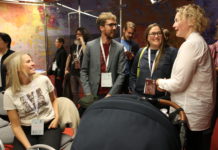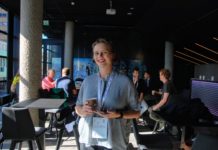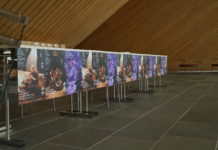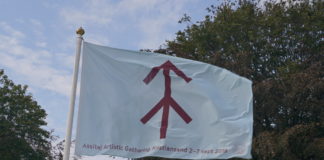The Focus Day on Theatre for Social Change, held at the iThemba Labantu Community Centre in Philippi township near Cape Town, involved a range of different speakers talking about their work across the globe.
What interested me most from these discussions was the different ways in which Theatre for Social Change projects are funded and monitored. In my experience from the United Kingdom, many Community Performance projects adopt a top-down approach. The potential outcomes and impacts of a project are dictated by funders before the start of a project and funding is only continued if there is evidence that these original intentions are being met. As I believe that this can lead to a gap between funding decisions and participants’ needs, I was delighted that the discussions at the Focus Day shed light on alternative structures of funding and project implementation.
One such model was provided by the twenty16 project, a devised production produced by Theatr Iolo and The Welfare in North Wales. Paul Jenkins and Olivia Harris, presenting the project, explained that their philosophy had been to let the direction of the activities emanate from the participants themselves. They gave the example of one young participant whose difficulties had lead to disruptive behaviour in the group. However, the flexibility of the project’s stated outcomes had allowed the project facilitator to change tack – rather than insisting the boy keep struggling with the same activities, they set the boy a different challenge of putting his thoughts and feelings into writing. By the end of the project, the participant was one of the most proactive and conscientious members of the group, the production was a sell-out and a blossoming company of Actors was created. Despite having no requisite outcomes, twenty16 was clearly a very successful project – and I wondered whether it could have ever been so successful if the project had been constantly focused on meeting pre-determined aims and objectives.
Another structure of project implementation was raised by Norman Issa and Gidona Raz from Elmina Theater in Jaffa, Israel – a company focused on bringing Jewish and Arab Children together to make Theatre. Many in the room were surprised when Issa and Raz explained that the Israeli Government funds their work without requiring specific outcomes to be met: once Elmina Theater receives the funds, they are able to run the project as they see fit. Whilst they hope that their work fosters peace, they told us that their projects work without a predetermined agenda – explaining that it is purely the act of different children being together that makes a difference. Indeed, having watched some clips from Elmina’s bilingual productions for Children, there is little doubt in my mind of the high degree of social impact that Elmina Theater achieves.
Overall, it is clear to me that although the two projects do not have pre-determined indicators of success, they have each produced high-quality work with a plethora of positive outcomes and impacts. It is certainly my hope that more funders that I come across will see the value of doing work in this way, granting more freedom for Community Performance projects to develop more organically.









